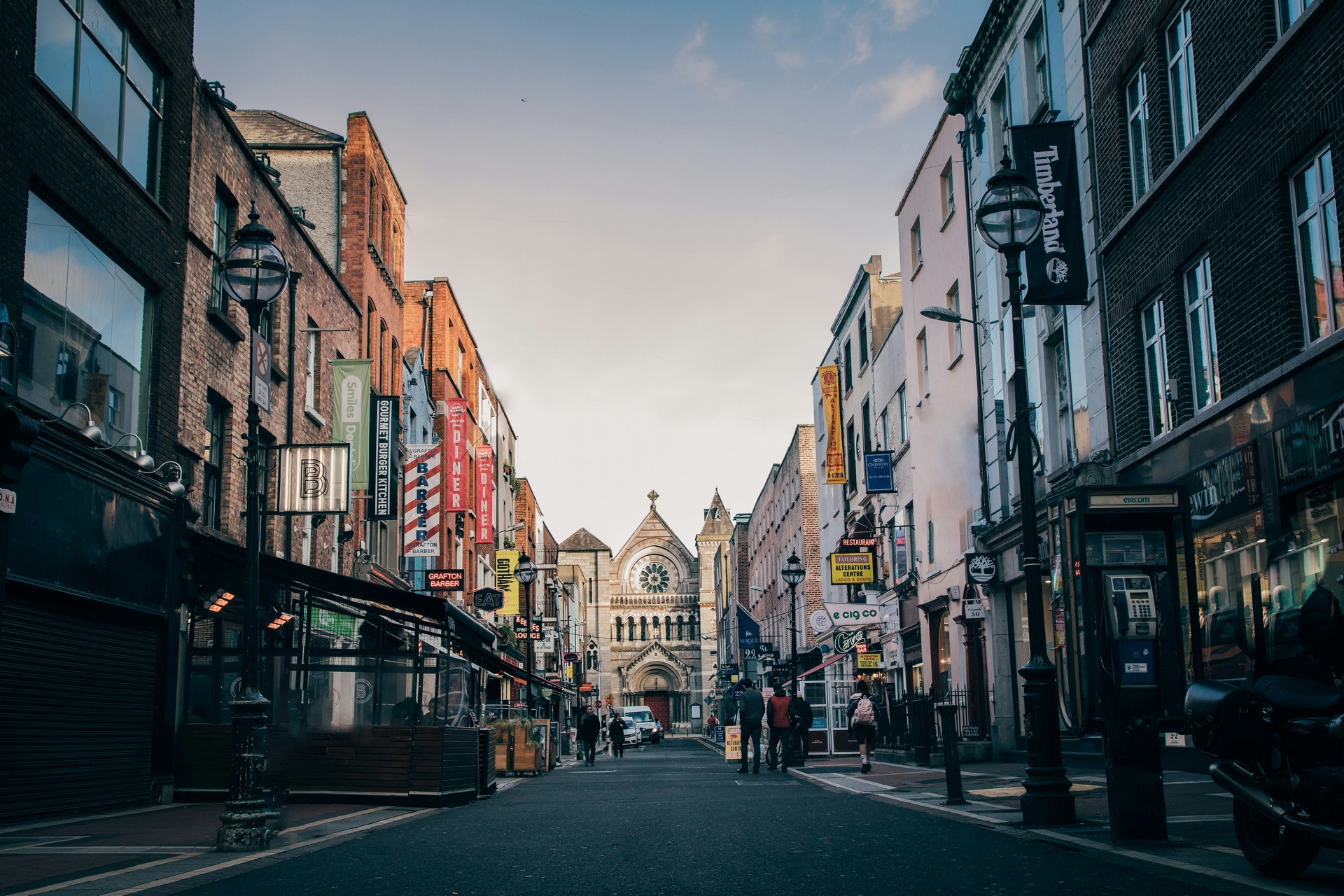Ireland

28
Universities

5,000+
Courses

EUR
Currency

About Ireland
Ireland, known as the Emerald Isle for its lush green landscapes, boasts a rich tapestry of culture, history, and natural beauty. From the dramatic cliffs of Moher to the vibrant streets of Dublin, Ireland offers a unique experience for students seeking higher education. Its universities, steeped in tradition yet forward-thinking, attract students from around the globe.
Studying in Ireland offers a blend of academic excellence and a vibrant social scene. With a strong focus on research and innovation, Irish universities provide a dynamic learning environment conducive to personal and professional growth. From renowned institutions like Trinity College Dublin to the University College Cork, students have access to a diverse range of programs and disciplines.
Living in Ireland offers a welcoming and inclusive atmosphere, where students can immerse themselves in the country's rich heritage while embracing its modern amenities. Whether exploring quaint villages or bustling cities, there's always something new to discover. The warmth of the Irish people and the sense of community fostered on university campuses make studying and living in Ireland a truly enriching experience.
Why Study in Ireland?
- Renowned Universities
- Cultural Experience
- Welcoming Environment
- High-Quality Education
- Vibrant Student Life
- Stunning Landscapes
- English-Speaking Country
- Research Opportunities
- Strong Economy
- Gateway to Europe
Top Universities in Ireland
- Trinity College Dublin
- University College Dublin
- National University of Ireland, Galway
- University College Cork
- Dublin City University
- University of Limerick
- Maynooth University
- Technological University Dublin
- National College of Ireland
- Dublin Institute of Technology
Top Courses in Ireland
- Computer Science
- Business Administration
- Engineering
- Medicine
- Finance
- Data Science
- Psychology
- Marketing
- Law
- Biotechnology
Admission Requirements
- Academic Qualifications
- English Language Proficiency
- Application Process
- Visa Requirements
- Financial Support
- Health Insurance
- Proof of Accommodation
- Statement of Purpose
- Letters of Recommendation
- Entrance Exams
Scholarships
- Government of Ireland International Education Scholarships
- Fulbright Scholarships
- Irish Aid Fellowship Training Programme
- Higher Education Authority (HEA) Scholarships
- Trinity College Dublin Scholarships
- University College Dublin Global Excellence Scholarships
- University College Cork International Scholarships
- Dublin City University International Scholarships
- University of Limerick Scholarships
- Maynooth University Scholarships
Ireland: Industry & Economic Outlook
Ireland's economy is characterized by a diverse range of industries, including technology, pharmaceuticals, agriculture, and finance. The country has attracted multinational corporations due to its favorable business environment and low corporate tax rates. Despite challenges posed by Brexit and global economic fluctuations, Ireland has maintained a resilient economy, with strong GDP growth and low unemployment rates. The government's focus on innovation, education, and foreign investment continues to drive economic expansion, positioning Ireland as a dynamic hub for international trade and investment.
In Demand Job Sectors
- Technology
- Healthcare
- Finance
- Engineering
- Pharmaceuticals
- Information Technology (IT)
- Biotechnology
- Business Administration
- Renewable Energy
- Construction
Skill Shortages
- Information Technology (IT)
- Healthcare Professionals
- Engineering
- Accounting and Finance
- Science and Research
- Construction Trades
- Cybersecurity
- Digital Marketing
- Sales and Business Development
- Language Skills (particularly European languages)
Part time Careers & Work Opportunities
- Retail Sales Assistant
- Waiter/Waitress
- Barista
- Tutor
- Administrative Assistant
- Customer Service Representative
- Event Staff
- Babysitter/Nanny
- Tour Guide
- Freelance Writer/Content Creator
Our Process
- Initial Assessment
- Research & Recommendations
- Application Assistance
- Test Preparation
- Visa Guidance
- Financial Planning
- Pre-departure support
- Ongoing support
- Follow-ups
FAQ’s
In Ireland, there are primarily two types of visas for students: the Short Stay "C" Visa and the Long Stay "D" Visa. The Short Stay Visa allows students to stay for up to 90 days, typically for short courses or language studies. The Long Stay Visa is for longer programs, such as undergraduate or postgraduate degrees, and allows students to stay for the duration of their studies.
To obtain a student visa for Ireland, applicants typically need an acceptance letter from a recognized educational institution, proof of sufficient funds to cover living expenses, evidence of medical insurance, and a clean criminal record. Additionally, applicants may need to demonstrate proficiency in English through a recognized test like the IELTS or TOEFL.
Yes, international students can work part-time while studying in Ireland. Students from countries within the European Economic Area (EEA) or Switzerland have unrestricted access to the Irish labor market. Non-EEA students are typically allowed to work up to 20 hours per week during term time and full-time during holidays, provided they have a valid student visa and are enrolled in a recognized program.
Yes, it is possible to extend a student visa in Ireland under certain circumstances. Students wishing to extend their stay may need to provide evidence of ongoing enrollment, sufficient funds to support themselves, and valid reasons for the extension, such as continuing education or changing programs. It's important to apply for an extension before the current visa expires.
Ireland offers attractive post-study work options for international students. Graduates from recognized Irish institutions can apply for a Stamp 1G visa, which allows them to remain in Ireland for up to two years to seek employment or start their own business. If they secure a job relevant to their field of study, they may be eligible to apply for further residency permits or work visas. Additionally, graduates of STEM (Science, Technology, Engineering, and Mathematics) courses may have the opportunity to extend their stay further under the Third Level Graduate Scheme.
Quick Facts
Capital
Dublin
Population
5,087,685
Language
Irish
International students
30,437
GDP
$513.73 billion (about $1,600 per person in the US)
Dialing Code
+353
Cost of Living
€3,436
Scholarship
YES
Migration Possibility
YES
Tuition fees
€18,000 - €53,000
Average graduate incomes
€34,723 per year
Intakes
January and September
